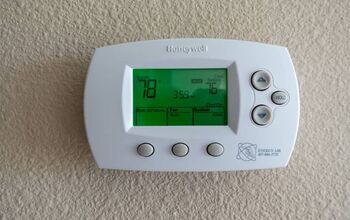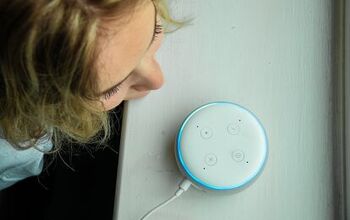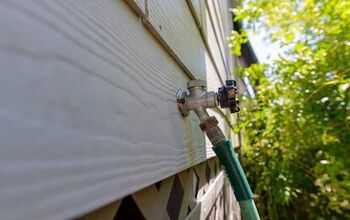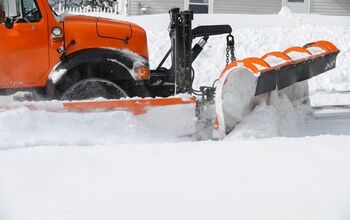Who Do You Call To Get Rid Of A Hornet’s Nest?

The last thing you want to find near your home is a nest full of angry hornets. Their sting is painful, potent, and worth avoiding at all costs whenever possible. So, who do you call to get rid of a hornet’s nest?
Immediately call a pest control company to get rid of a hornet’s nest if you find one on your property. It’s not worth the risk of removing a hornet’s nest without professional help. A hornet is a type of wasp, but they’re more aggressive and dangerous than traditional wasps, so special gear is needed for nest removal.
Hornet nest removal costs between $100 and $400 depending on the size of the nest, hornet population, and location. Follow along as we explore what to do and who to call when you find a hornet’s nest at home.
Who To Call When You Find A Hornet’s Nest
Call a pest control service right away when you find a hornet’s nest. They have the knowledge, skills, and gear to safely remove a hornet’s nest. Experienced pest control professionals can approach and remove hornet nests without making the problem worse.
They use several methods to remove a hornet nest, such as chemical treatments and manual removal. Some people mistakenly think they can research these methods and remove a nest themselves. However, this is a mistake as it takes years of experience to understand that each situation is unique.
There’s also a strong chance that you don’t have the protective equipment that a pest control professional has. That alone is reason enough to call for professional help and avoid the risk of getting stung.
How Much Does It Cost To Remove A Hornet’s Nest?
Removing a hornet’s nest typically costs between $100 and $400, but it varies based on many factors. For example, the nest’s location, accessibility, and hornet population all affect the overall cost. These factors paired with the risk that accompanies removing the hornet nest drive the price up.
After all, not only do pest control professionals risk getting stung, but they must also sometimes reach tricky, dangerous spots. That’s especially true if they must climb a ladder and dislodge a nest full of angry hornets from the corner of your roof or a tall tree.
The method they use to remove the nest naturally affects the cost of removal as well. You can expect to spend around $300 for hornet nest removal unless the nest is tiny and has a small population.
How To Avoid Being Stung By Hornets At Home
There’s no way to guarantee your safety when near a hornet’s nest. However, you can take several precautions to avoid being stung by hornets, such as:
1. Close Your Windows
Hornets are most comfortable outside, but that doesn’t mean they won’t enter your house if given the opportunity. That’s especially true if you leave your windows open, or if your windows have gaps and cracks. Keep your windows closed at all times if you discover a hornet’s nest in your yard.
Hornets may spend a lot of time in their nests, but they venture out throughout the day. This is when they search for food, and your home is a strong food source. That’s especially true if they smell a sweet aroma coming from your windows.
It’s also important to fix or replace your windows if they have gaps and cracks. This can also help keep your home safe from burglars.
2. Seal Your Door Gaps With Weatherstripping
Hornets primarily fly around, but they can also crawl into your home through gaps under your door. Door gaps are common entry points for spiders, wasps, hornets, mosquitoes, and even mice. The easiest way to keep pests out of your house is to place weatherstripping at the bottom of your doors.
Weatherstripping a door costs as little as $35 if you hire a professional. However, it’s so easy to install weatherstripping that you can do it without professional help for much less money. Weatherstripping costs as little as $6 if you buy it from a home improvement store.
3. Remove Food Sources
If there’s one thing that hornets love, it’s the smell of sweet fruit. Fruit, sugar, and artificial sweeteners can easily attract hornets. Naturally, hornets become aggressive when feeding, whether you pose a threat or not in some cases.
That’s why you must routinely pick up fallen fruit, food remnants, and trash in your yard. Some people even go as far as removing citrus fruit-bearing plants from their yards. Fruit trees and aromatic plants with bright, colorful flowers are like hornet magnets.
You must also be careful if you have a can of soda or fruity drink outside. Ideally, you should keep your drinks in clear containers. That way, you can check them for hornets to avoid swallowing one or getting stung.
4. Keep Your Distance
The most obvious hornet safety tip is that you must keep your distance from the nest. Granted, this is hard if the nest is near an entry door. However, it doesn’t take much to get a hornet’s attention and make it angry.
Try to stay at least 6-10 feet away from the nearest hornet’s nest if possible. Some professionals even recommend staying 300 feet away from a hornet’s nest. This isn’t possible in some cases if your yard is small. Then you should at least call a local pest control company as soon as possible to avoid getting stung.
Run as far as you can in a straight line if a hornet pursues you. They will likely stop chasing you after you’ve run 50 feet but try to run 100 feet if possible. Don’t panic if you get stung but avoid it whenever possible.
How To Keep Hornets Out Of Your Yard
The best way to keep hornets out of your yard is to seal your trash cans and remove fallen food. Avoid eating outside and quickly clean up after yourself if you do. Natural repellents like citronella, lavender, peppermint, and eucalyptus oil can also help keep hornets away.
Are Hornets Or Wasps More Aggressive?
Hornets are more aggressive than wasps, but both of them have painful stings. Both hornets and wasps are protective over their nests, and that’s typically why they sting people. However, hornets are more prone to randomly stinging people than wasps are in some cases.
Many people don’t know that hornets are a type of wasp. They may vary in size, behavior, and appearance, but they have more in common than many people realize. So, while hornets are more dangerous than the typical wasp, they are wasps themselves.
Hornets have more dangerous venom than other types of wasps. That’s why a hornet sting is more painful than a wasp sting. Avoid getting too close if you can’t tell whether you have hornets or traditional wasps at your house. Wasps and hornets can sting you multiple times if given the chance.
Summing It Up
Call a nearby pest control service if you find a hornet’s nest on your property. Don’t attempt to remove a hornet’s nest without professional help, as it’s dangerous and not worth the risk. Keep your windows closed, seal your trash cans, and place weatherstripping under your doors to protect yourself from hornet stings.
Related Guides:

Nick Durante is a professional writer with a primary focus on home improvement. When he is not writing about home improvement or taking on projects around the house, he likes to read and create art. He is always looking towards the newest trends in home improvement.
More by Nick Durante











![10 Best Electric Lawn Mowers - [2022 Reviews & Top Rated Models]](https://cdn-fastly.upgradedhome.com/media/2023/07/31/9070486/10-best-electric-lawn-mowers-2022-reviews-top-rated-models.jpg?size=350x220)

![The 5 Best Angle Grinders – [2022 Reviews & Buyer's Guide]](https://cdn-fastly.upgradedhome.com/media/2023/07/31/9071326/the-5-best-angle-grinders-2022-reviews-buyer-s-guide.jpg?size=350x220)













